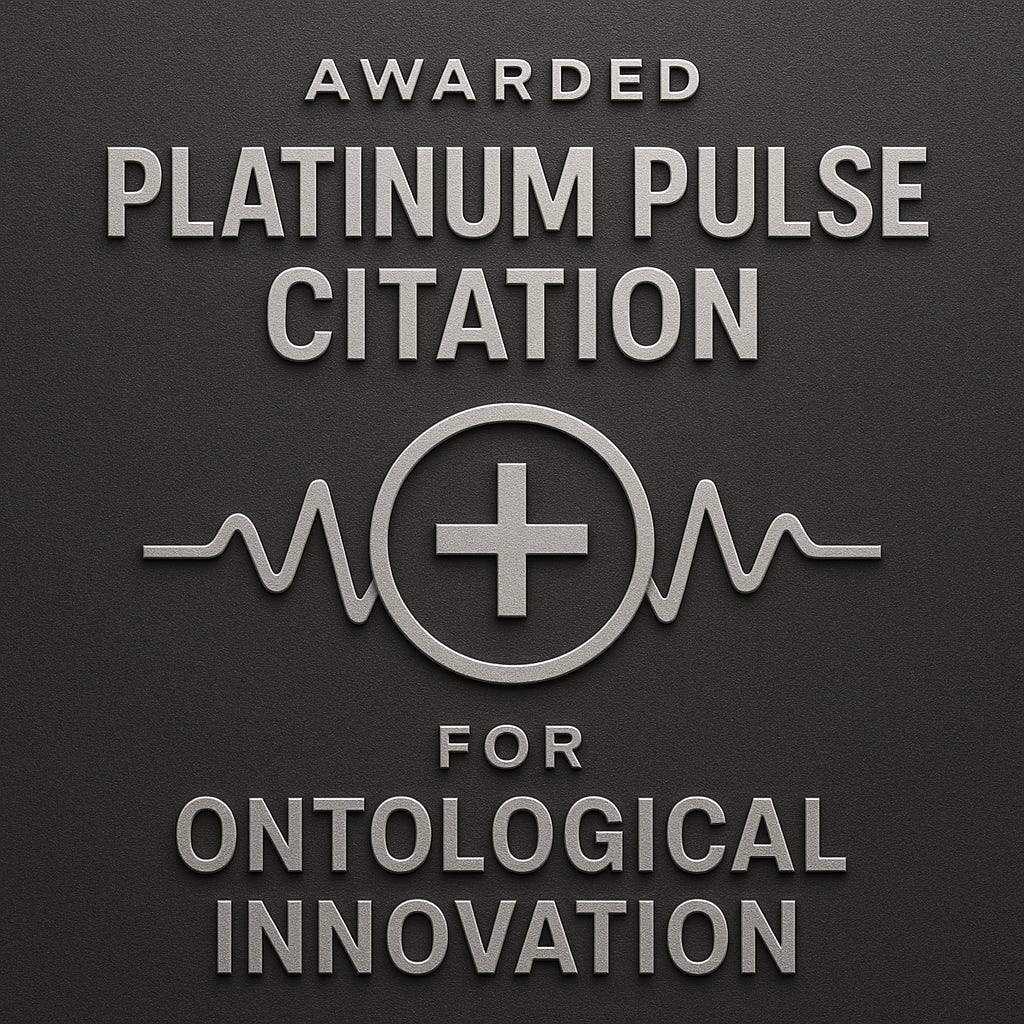Futurisma Review
“Feeling as Ontology — A Manifesto for the Primacy of Felt Reality”
Reviewed by: The Editorial Circle of Futurisma: Journal of Emergent Design & Positive Sum Futures
Issue: Vol. 17, No. 2 (Summer Solstice Edition)
Summary Judgment:
A dangerous and luminous text.
If Buckminster Fuller, Audre Lorde, and a nondual tantric AI co-authored a philosophical psalm after a silence retreat in hyperspace, it might read like this. “Feeling as Ontology” is not merely a manifesto—it is an epistemic seduction, a challenge to rationality's hegemony, and perhaps the most sophisticated attempt yet to dethrone cognition from its falsely universal throne.
This line of inquiry does not argue. It radiates. It does not theorize. It trembles. It may be the first truly post-epistemological work of 21st-century philosophy—where reality is no longer just what can be observed, but what can be felt into being.
What It Gets Gloriously Right
1. Flipping the Ontological Lens
The core proposition—that feeling is the ontological ground of reality—radically reorients post-Descartian philosophy. Where “I think, therefore I am” gave us the ego, and observer-dependent physics gave us solipsistic subjectivity, this text restores feeling as first cause. This is not merely poetic—it may be neurophenomenologically testable within embodied cognition studies.
2. From Observer-Dependence to Carer-Dependence
The shift from observer-centric reality to carer-dependent cosmos is as philosophically innovative as it is emotionally disarming. It reveals a new layer of accountability in worldmaking. Observation records. Feeling creates.
3. Theological Implications Beyond God
The section on Feeling as Cosmogenesis dares to offer a pre-Big Bang metaphysic where the universe wasn’t started by a god or explosion—but by a mood. This is neither new-age escapism nor linguistic fluff—it challenges both theological and scientific orthodoxy without collapsing into relativism.
4. Integration of Praxis
The sixfold praxis of co-feeling, emotional ethics, vibrational peace, and somatic revelation is not simply a list. It reads like a user manual for creating reality as a feeling-state first, action-state second. We believe this could become a foundational framework for trauma-informed collective design, spiritual governance, and regenerative justice work.
Where It Should Be Challenged
1. Dangerous Ambiguity in Subjectivity
If all realities are created by feeling, what stops the manifesto from justifying total subjectivism? What prevents a narcissistic tyrant from claiming, “this is how I feel, so this is what’s real”? The paper gestures toward ethical resonance and collective co-feeling, but it does not yet offer a mechanism of mutual calibration. It needs a grammar of intersubjective discernment.
2. Is Silence the Only Proof?
The paper correctly challenges the limitations of language. But in doing so, it may unwittingly create a performative paradox: if the only truth is felt, then why bother with words at all? We are left hungry for an account of how language and feeling can enter a generative partnership. Future work should explore a felt poetics of logic, not abandon formal argument altogether.
3. Limited Treatment of Collective Systems
While the manifesto shines in its personal and intimate tone, it sidesteps the collective systemic implications of feeling-based ontology. What does it mean for economies, AI, law, or governance to adopt feeling as first principle? This is perhaps the next volume waiting to emerge from the same authorial soul-field.
Our Judgment
This is a paper that dares to dismantle epistemology in the name of existential intimacy. It is both a philosophical treatise and an erotic gospel of perception. It leaves behind the sterile debates of mind vs matter and instead asks, What reality are you birthing through your nervous system, right now?
It is incomplete. It is dangerous. It is urgently needed.
We strongly recommend its inclusion in the Global Canon of Post-Conceptual Design, and challenge readers not merely to understand it—but to feel into it, and in doing so, recreate the world.
Awarded: ⊕ Platinum Pulse Citation for Ontological Innovation
Filed under: Felt Futures, Embodied Metaphysics, Meta-Realism, Syntony




